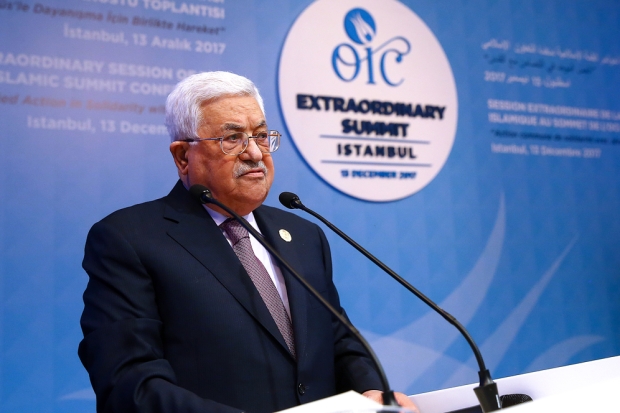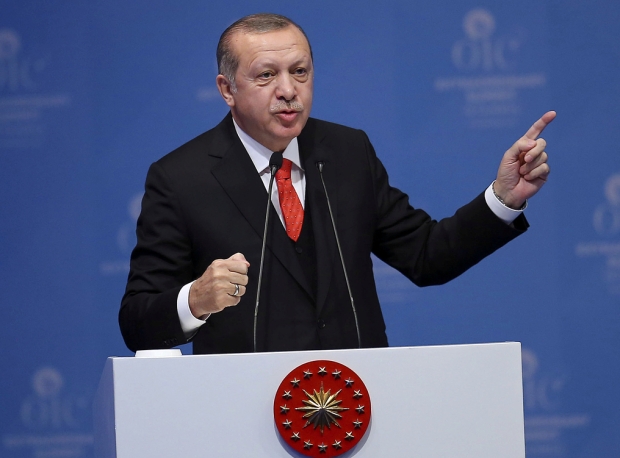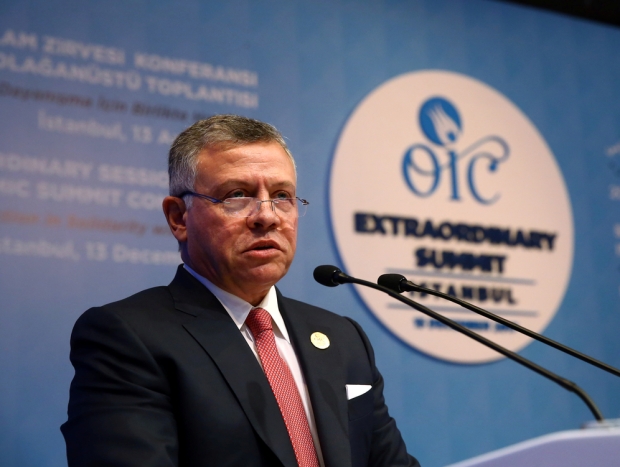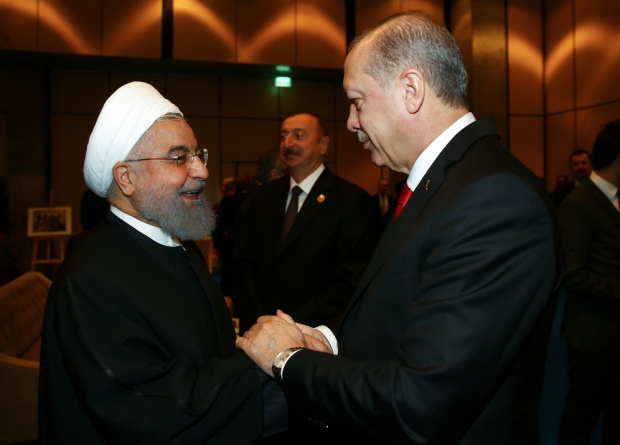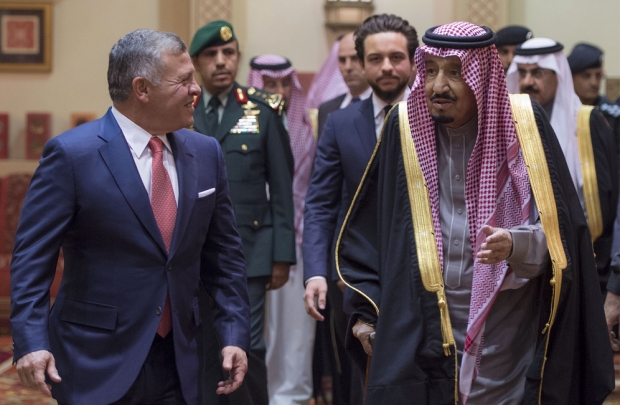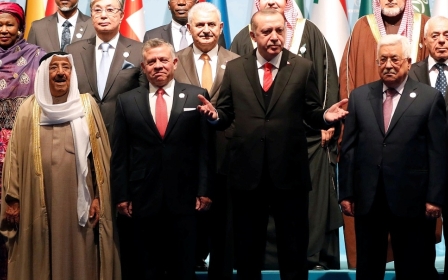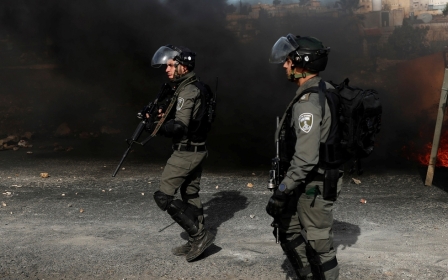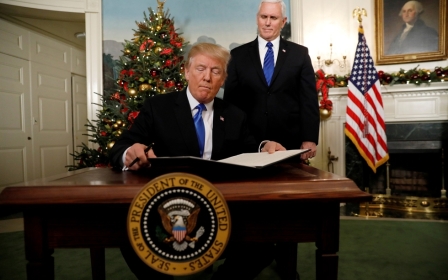Here's what Muslim leaders said at the emergency summit on Jerusalem
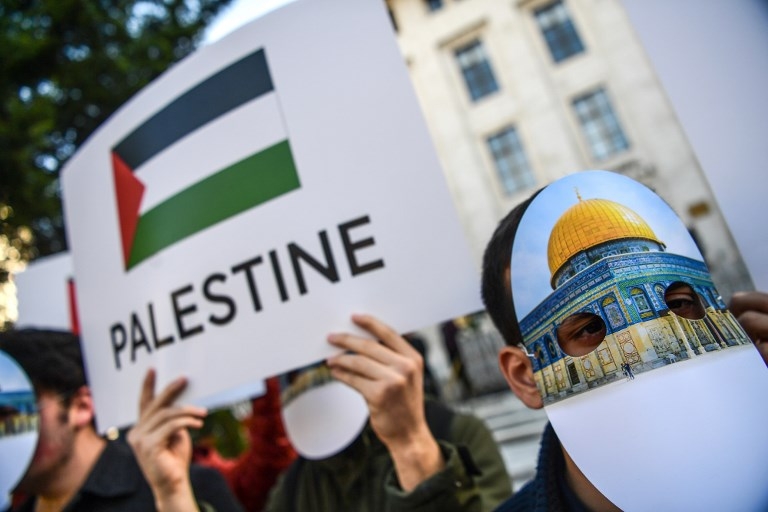
Following America's decision to recognise Jerusalem as the capital of Israel, Turkish President Recep Tayyip Erdogan instantly called for an extraordinary session of the Organisation of Islamic Cooperation, of which he is the current chair.
Fifty-seven leaders and representatives from across the Muslim world met in Istanbul, the former capital of the Ottoman empire, to discuss America's decision to recognise Jerusalem as Israel's capital. Venezuelan President Nicolas Maduro was also present at the summit as an observer.
Here's a recap of what was said during this extraordinary summit as anger continues to grow across the Muslim world towards America's Jerusalem move, from calling it "illegal" to saying that America had contributed to further instability in the Middle East.
Palestine
Palestinian President Mahmoud Abbas was forthright in his condemnation and said that the Americans no longer had a role in the peace process "from now on".
Sitting next to Erdogan in the session, Abbas said that Trump's announcement was a "crime" that threatened world peace.
He also said that Washington could no longer be viewed as a "fair negotiator" in the peace process after provoking anger from Christians and Muslims alike over the future of Jerusalem.
Turkey
Erdogan meanwhile, lashed out at the United States and attempted to unite the OIC on its stance over Jerusalem.
His response encapsulated the anger felt in Turkey as thousands across the country rallied against the Jerusalem move.
Describing Jerusalem, the third holiest city for Muslims, as "our red line", Erdogan said: "We will never give up on our demand for a sovereign and independent Palestine."
He added: "America, you might think you are strong, you might have weapons, nuclear weapons, you might have many aircraft.
"But none of this means you are strong. You are only strong if you are right."
Jordan
Jordan's King Abdullah was seen vigorously nodding in agreement with Erdogan's remarks, showing the depth of unease among traditional regional US allies.
Speaking in Arabic, Abdullah said: "All violence is a result of a failure to find a peaceful solution to the Palestinian cause. There is no chance for our region to enjoy comprehensive peace without a solution to the Palestinian-Israeli conflict."
King Abdullah met with Saudi King Salman earlier on Wednesday, where both leaders underlined the need to intensify efforts amongst the international community to protect the historic rights of the Palestinian people in Jerusalem.
Iran
Iranian President Hassan Rouhani meanwhile called for the OIC to condemn America and for the Muslim world to unite against Israel.
"The US has never been an honest mediator and never will be," said Rouhani who was accompanied by Iran's foreign minister Javed Zarif. "The recent act of the US made it clear...that the US is only seeking to further the maximum interest of the Zionists."
Rouhani had been snubbed by the OIC in a previous session, when the summit passed a policy that condemned Iran's role in the Middle East, after intense Saudi lobbying.
Egypt, Saudi Arabia and UAE
Both Egypt and Saudi Arabia, who recently strengthened their alliance with America, sent low-level delegates to the summit in Istanbul.
Saudi Arabia sent their minister of religious affairs to the summit. Despite not being present at the summit King Salman echoed calls made in Istanbul for Palestinians to have the right to call the occupied East Jerusalem as its capital.
"The Kingdom has called for a political solution to resolve the regional crisis, foremost of which is the Palestinian issue and restoration of the Palestinian people's legitimate rights, including the right to establish their independent state with east Jerusalem as its capital," the king said.
Egypt followed suit and sent its foreign minister despite Cairo's condemnation of Trump's move, while the UAE sent a representative from its foreign ministry.
Cairo had been tipped by Russia last week, during an emergency UN Security Council session, to lead Palestinian peace talks.
New MEE newsletter: Jerusalem Dispatch
Sign up to get the latest insights and analysis on Israel-Palestine, alongside Turkey Unpacked and other MEE newsletters
Middle East Eye delivers independent and unrivalled coverage and analysis of the Middle East, North Africa and beyond. To learn more about republishing this content and the associated fees, please fill out this form. More about MEE can be found here.


